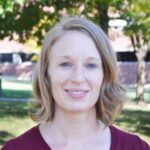Volume 36 Number 6 | December 2022
Saint Louis University, Quest Diagnostics Team up on Innovative Partnership to Address the Shortage of MLS Professionals Nationwide
Amanda Reed, MAE, MLS(ASCP)CM

The meteoric rise in services—medical laboratory scientists perform an astounding 14 billion diagnostic tests in the United States each year—is creating a shortfall of MLS professionals. Simply, there are not enough of these behind-the-scenes heroes to keep pace with the field’s rapid growth.
Nationwide, 337,800 practicing medical laboratory professionals serve 330 million Americans, according to data from the Bureau of Labor Statistics (BLS). To put that into context, that is one MLS professional for every 1,000 citizens.
Looking ahead, BLS projects the field will increase by 17 percent through 2030, with an estimated 12,600 openings for MLS professionals during the next decade.
Then there is another reality: the current MLS workforce is leaving the field. At Quest Diagnostics, one of the world’s leading providers of medical diagnostic services, a third of the staff is at or past retirement age.
“Despite the current staffing challenges, the future of medical laboratory science is bright. More people are discovering the difference they can make in detecting a wide range of diseases.”
Addressing the Staffing Shortage
Unfortunately, the number of people currently pursuing a bachelor’s degree in medical laboratory science will satisfy only half of the demand for these workers during the next 10 years. Yet many universities are scaling back their programs or shuttering them altogether. Couple that with the fact that few people know what medical laboratory science is or the profound impact these medical detectives have on patient care. In most instances, people don’t think about who analyzes their COVID-19 tests, blood draws, urine samples, and the collection of other specimens.
Rather than wait for a divine intervention to address the shortage of MLS professionals, Saint Louis University (SLU) and Quest Diagnostics are teaming up as part of an innovative partnership to help create the laboratory workforce of the future.
Beginning in 2023, SLU and Quest will launch an accelerated medical laboratory sciences bachelor’s degree program. The 16-month, next-generation MLS program will combine online academic courses with intensive hands-on learning and clinical experiences in Quest’s Lenexa, Kansas, laboratory. The idea is to teach students the fundamentals of this dynamic industry while exposing them to the inner workings of a busy laboratory.
SLU has a long history of educating medical laboratory scientists. The university’s ground-campus MLS program in St. Louis, Missouri, was among the first in the nation and has achieved more than 85 years of continuous accreditation. There is a 100 percent job placement rate for students within six months of earning their bachelor’s degree, and the program has a near-perfect pass rate on the national MLS board certification exam.
In Lenexa, students will gain analytical skills and technical expertise in clinical chemistry, medical microbiology, immunohematology, hematology, and clinical immunology. After successfully completing the program, graduates will be eligible to take the national board of certification examination administered by the American Society for Clinical Pathology (ASCP).
A Promising Career
Like in other healthcare fields, careers in medical laboratory science have their advantages: a stable income, good benefits, and a chance to give back to something bigger than ourselves.
But there is another draw. For those who want to want to work in a helping profession but do not enjoy delivering care at a patient’s bedside, medical laboratory science is the ideal profession. It’s because medical laboratory scientists can flex their health science muscles in a rapidly changing field that promotes lifelong learning.
A Bright Future
Despite the current staffing challenges, the future of medical laboratory science is bright. More people are discovering the difference they can make in detecting a wide range of diseases. Creative partnerships between academia and the industry will help train new MLS professionals on the latest and greatest methods for diagnosing diseases, informing patient treatment plans, and saving lives.
The Lenexa MLS program is geared to those with at least 60 college credit hours or a bachelor’s degree in another field. There will be three start dates per year—spring, summer, and fall—beginning in 2023. SLU is currently enrolling students for its first MLS cohort. For more information, visit medlabscience.slu.edu.
Amanda Reed is Assistant Professor and the MLS Program Director at St. Louis University’s Doisy College of Health Sciences in St. Louis, Missouri.